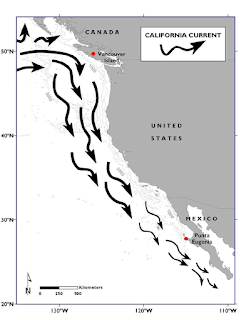THERE ARE LESSONS LEARNED That should not require repetition.
Once learned they should become part of our experience’s vocabulary. The idea
that we need to repeat errors ad
infinitum to integrate a given idea suggests that emotion rather than
reason will guide thought and the action that derives from thought. I have an
acquaintance that flies. He commented to me that the hardest thing for a
neophyte pilot to learn is to trust his or her instruments. We are creatures of
habit. We are creatures whose habits are defined by the emotional response to
the data provided by our senses. Instruments are robotic; that is to say that
they are data points, unencumbered by emotion, and, to the degree that they are
well maintained and calibrated, will report accurately. When sensory
information is unclear, the data provided by the instruments is not open to debate.
I think
that the same idea can be translated to navigation in a sailboat. I know that I
am a creature of habit. While I pride myself in being a rational person, the
truth is that I can find reason encumbered by emotions or misperception. My
greatest enemy is the false syllogism, one that proceeds from an erroneous
premise and is followed to an erroneous conclusion. I need to check myself
frequently. Healthy skepticism has always been my favored tonic to address risk
of falling prey to an inappropriate conclusion, and the necessary and logical
consequences of that choice.
There is a
misconception that navigation is plotting a course, riding the line, and
arriving in time for cocktails. GPS has done little to dispel this myth. Don’t
get me wrong, I am no Luddite: I love GPS, radar, and my chart plotter. But I
grew up with the art of coastal navigation known as “Dead Reckoning”. I learned
the arcane craft of deduced reckoning of a position, based on observations made
by the navigator compared with known information derived from the experience of
mariners and compiled in pilot books.
My charts
and pilot books were my grimoire, my parallel rules, my calipers, and hand
bearing compass were my magic wands. I could correct for magnetic deviation,
calculate and compensate for set and drift. Their meaning was shared like sacred gnosis to the
initiate. I could find the optimal course to steer and estimate time of
arrival; my prognostications became incantations, magic words spoken to guide
my craft over the face of the deep. To my mind, navigation is a communal act
that has specific and individual consequences. And I must confess that I became
an unfaithful practitioner of the ancient craft. I became lazy and trusted too
much in the line drawn on my chart plotter.

Anybody
that has sailed the coast of California knows that there is a current that will
have its way with you. It charges southward from Washington State, bringing
cold, artic water like a river, down the West Coast till it reaches Cabo San
Lucas. It can create fog and rain. It can create gales offshore. It is marked
by gyres along the way. It can carry you effortlessly in its caress to your
destination, or stop you in your tracks if you try to sail against it.
GPS is
blissfully unaware of the California Current.
And, in the
sophomoric certainty that partial knowledge can incite, I became the navi-guesser
rather than the keeper of knowledge and arbiter of the experience of preceding
generations of mariners. The line drawn on my chart plotter said that I would
arrive at the mouth of Channel Islands Harbor. The speed calculations provided
the time. But what of set and drift? The instruments reported the data. They
were saying, “Dude, you’re falling short and might make Point Mugu, not Channel
Islands Harbor...”
What had
happened? I had not taken the whole context into account as I plotted my course
from the Isthmus at Catalina to my home port. I did not account for the current
that would push my craft to the East. Nor did I consider the information that
was suggesting that I needed to alter my course. This is not the fault of the
instruments, it is almost in spite of them. I loved having radar while crossing
shipping lanes. I could see vessels well before they would become visible to my
eye. But I scanned the horizon for oncoming commercial traffic. Here is the
issue: I had attributed omniscience to the instruments.
Navigation
is an art. It is as much alchemy as it is a data-driven pursuit. The first
datum to consider is the limitation of the tools. I had not done that. This is
not the error of a Luddite, it is the error of a child of technology. I would
encourage all of us to embrace both the alchemy and the chemistry of
navigation. In that balance we find art. And as the poet has said: “Lessons learned are like bridges burned, We
only need to cross them but once…”
Fair winds
and following seas,
- Pablo.
Thanks
for spending a few moments with us. Please take a moment to join our mailing
list. Feel free to leave a comment or a question.


